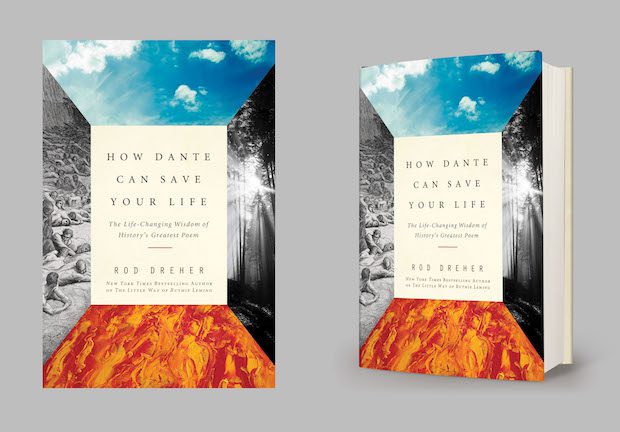Book News

Hey readers, I wanted to update you with some good news. The galleys of The Benedict Option are being mailed out today from New York. These are also known as “advance reader copies,” and are the next-to-final version of of the book. It goes out to journalists, reviewers, and others who for whatever reason the publisher judges need to see the text as soon as possible.
Usually, what’s in the galley is 99.999 percent what’s going to be in the final hardback copy, but sometimes we find errors — typographical, grammatical, etc. — that we change before the book goes to printing. I’ve been on the receiving end of other people’s galleys for years, and never really took seriously the pro forma warning to journalist readers not to quote the galley copy without checking with the publicist to see that it accurately reflects the final version. Then I started writing books of my own, and discovered that no matter how hard and how diligently the writer and the team of editors working on a given book do their job, errors often slip through. It really is incredible how several sets of eyes can have gone over the same text over and over, and still, errors will get through. Readers don’t get to see how the sausage is made regarding book production, but let me tell you, it’s hard, grinding, often tedious work, and very little is more depressing to the writer and editors than to have gone through it all so many times, only to discover at publication that we missed an error of spelling, grammar, or punctuation.
All of which to say is that it may seem easy-peasy on the outside, writing and publishing books, but it takes immense and concentrated effort. I used to read books and, when finding a misspelled word or something like it, would think, “Aha! Carelessness! Disgraceful!” Now my heart falls and I pity the book production team, because I know how hard they all likely worked to prevent that from happening, but how it nevertheless did happen, because we are human.
::::bows head, has a moment, faces for a split-second the possibility that this is going to happen to him, gathers fragments against the possibility of his ruin, carries on::::
Now, where was I? Yes, anyway, the news that the galleys are in the mail makes me aware like nothing else to this  point that the Benedict Option project is finally coming to fruition in book form. Two or three years ago, my friend and reader of this blog Leroy Huizinga, a Catholic theologian, wrote to say that I really needed to write the Ben Op book already. I told him quite honestly that I’d love to do that, but I didn’t see a market for it. We both knew that the realities that the Ben Op idea seeks to address were very much in play, but from my perspective, the concept seemed too radical for the moment, in terms of finding an audience.
point that the Benedict Option project is finally coming to fruition in book form. Two or three years ago, my friend and reader of this blog Leroy Huizinga, a Catholic theologian, wrote to say that I really needed to write the Ben Op book already. I told him quite honestly that I’d love to do that, but I didn’t see a market for it. We both knew that the realities that the Ben Op idea seeks to address were very much in play, but from my perspective, the concept seemed too radical for the moment, in terms of finding an audience.
The Indiana RFRA debacle, followed by Obergefell, changed everything. That is, those two events both revealed something that was present but hidden from the sight of many millions of Christians, and also concretely changed things such that maintaining illusions about the religious and moral state of America is no longer possible. Many, many small-o orthodox Christians (the word I used instead of “conservative,” because I don’t want political thinking to confuse things) have come to see that we are into dark days, days that are getting darker, and the believers who persist in the illusion that we are in more or less normal times, and react likewise, are like the people who mocked Noah and his sons, telling them to relax, that this rain was bound to pass.
If you’re a Christian who believes Trump’s surprise election is going to halt anything, you’re making a dangerous mistake. At best — at best — he will give us via his court appointments some breathing space, and a few more years to prepare. But even if Trump were a saint, he could not hold back the historical, economic, technological, and cultural forces carrying the West towards the shoals. Look at Pope John Paul II. He was, in fact, a saint, and a religious leader of towering character and vision. Look at his legacy. My belief is that he planted seeds of resistance that are maturing right now all over the world, but you would be hard-pressed to look at the Catholic Church’s situation in the West and see that St. John Paul II turned things around.
Then again, you would have said the thing about St. Benedict of Nursia a decade or so after his death. God knew otherwise, and we saw over the next few centuries the spectacular fruit that Benedict’s life and work bore. I believe it will be the same with John Paul, though I don’t expect to live to see it, and perhaps not even my grandchildren will live to see it. The point I’m making here is that the depth and magnitude of the crisis we’re all in forces us to alter our vision and our expectations. We must build the resistance in our hearts, our homes, our churches and communities — and the resistance must be built to last. It can be done. It has been done before. Christians like the Copts have been doing it for centuries, and are doing it right now. This is what the Benedict Option — and The Benedict Option — is about.
I want to tell you readers that I’m aware of complaints in the past from some of you that when a book of mine comes out, I post too much about the book in this space. Trying to be mindful of this, my publisher, Sentinel, and I have created a Benedict Option book blog that will soon be going live. Most of the blogging I do about the book will appear there, though not all — this, to give readers who don’t want to hear about the dang Benedict book again a break. I’ll cross-post some of those early blog entries here, but when it goes live, if you are a fan of the book, I’ll ask you to bookmark that blog too. It’s not ready yet, but it will be later this week, so heads up.
Also, I recently learned from the publisher of How Dante Can Save Your Life that the paperback edition will be in bookstores on March 14, the same days as The Benedict Option release (and the Feast of St. Benedict on the Orthodox New Calendar, which is a nice synchronicity). This is good news, in part because it makes the book affordable for classrooms and study groups. Here is a link to pre-order the paperback copy, the cover of which looks like this:

That was the original cover design of the hardback, and I thought it was pretty great. But the publisher, Judith Regan, went back to the drawing board, and what she came up with — what was the eventual designs of the cover and endpapers — was a masterpiece. I do encourage readers who have put off buying the hardcover copy to get one right now, though. Here is the link to order a hardcover copy. To be clear, there will be no differences in the text of the hardcover and the paperback. I had hoped to add a new chapter to the paperback, but for various reasons that wasn’t possible. So why should you spend the money on a hardback? Because it is one of the most beautiful books — in terms of a physical object — you’ll have in your personal library. It won a design award, and if you look at the cover and the endpapers, you’ll instantly know why. Take a look at these snaps I just took from my copy:






It is an awesomely designed book. It’s not going to make a difference to my bottom line whether you get the hardcover or the paperback. I’m only alerting readers who would prefer to have the hardcover that now is the time to buy it, before it gets remaindered.
Subscribe for as little as $5/mo to start commenting on Rod’s blog.